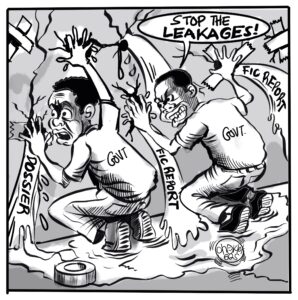THE Zambia Congress of Trade Unions (ZCTU) has asked government to consider increasing the Pay As You Earn (PAYE) threshold from K4,000 to K8,000.
In an interview, ZCTU president Nkole Chishimba said raising the threshold would help most workers overcome the negative effects of the economy.
“We have actually made a proposal that it is raised, it is not enough! We have proposed K8,000 actually. That is the proposal but it is bound to be considered. The general concept is that we want it increased. It may not come up exactly like that because these situations are negotiable. So, government must consider raising it. So that is our proposal. The message that we are sending across, it is not helpful at the level it is going by the state of our economy,” Chishimba said.
“One thing I want to elaborate is that we have been saying that the government must raise the tax base, broaden it, so that they also target the informal sector. There are a lot of workers in the informal sector, right now the burden is just on 10 percent of the total workforce who are in the formal sector. If they broaden it, even the people that they will bring on board will not suffer a heavy burden. Once they do that, because the question people will be asking is ‘if we increase the threshold to say K8,000, then don’t you think the government will lose out on revenue’, the answer is no! Once the tax base is broadened, that is very possible. So that is our position.”
Chishimba also urged government not to cancel the debt swap programme but to simply engage stakeholders on how best it could be implemented.
“The best approach is that we should not be dealing with it in piecemeal, there has to be a comprehensive approach. In my view, the stakeholders should meet again to deal with it. Remember after it was proposed by the previous regime, they called stakeholders just to explain to them but our comment was that we were suspicious going with the timing, very close to the election and then bringing such a scheme. So, it means that most likely it was done hastily, or for political expediency. So, we need now to approach it with a sober mind and allow every thought to flow,” said Chishimba.
“There were a lot more questions than answers. That is why some of us didn’t believe in it. It looked like a relief to workers but I don’t think that is the way you relieve workers. A debt swap means that the money that you are expecting and also plan for is given to you, for example, leave dues, settling in allowances. You expected that to come and hit your account, then you find that you will never see it, it is going to settle the debt somewhere else, the debt that you also owe. I think morally that is not the best way to do it. I know people who were indebted felt relieved, so the best we can do is to get back to the drawing board. It can’t be cancelled like that, [we need] to get back to the drawing board.”
























